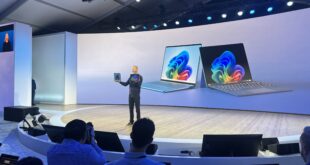Introduction
Are you team iPhone or team Android? The age-old debate continues, but today we’re diving into why the iPhone may have the upper hand when it comes to performance, user interface, security, and more. Let’s explore why the iPhone might just be the best choice for your next smartphone upgrade!
Overview of iPhone and Android Phones
When it comes to smartphones, two major players dominate the market – iPhone and Android phones. Each has its own set of strengths and features that cater to different user preferences.
The iPhone, known for its sleek design and seamless integration with other Apple products, offers a premium feel. On the other hand, Android phones come in a variety of shapes and sizes from various manufacturers, providing users with more options to choose from.
In terms of operating systems, iOS on iPhones is known for its simplicity and ease of use. Meanwhile, Android offers more customization options for tech-savvy users who prefer personalized settings.
Both platforms have a wide range of apps available in their respective app stores catering to different needs and interests. When it comes to security, iPhones are typically considered more secure due to stringent privacy measures implemented by Apple.
Whether you prefer an iPhone or an Android phone boils down to personal preference and what features matter most to you as a smartphone user.
Performance Comparison
When it comes to performance, the iPhone and Android phones each have their strengths. iPhones are known for their seamless integration between hardware and software, resulting in smooth and responsive performance. The optimization of Apple’s A-series chips ensures fast processing speeds and efficient multitasking capabilities.
On the other hand, Android phones offer a wide range of options from various manufacturers, each with its own unique hardware configurations. While this can lead to differences in performance across devices, flagship Android phones are equipped with powerful processors such as Qualcomm Snapdragon or Samsung Exynos chips that deliver impressive speed and efficiency.
Both operating systems continue to push boundaries in terms of performance enhancements with each new release. Whether you prioritize consistent high-speed performance or value customization options, both iPhone and Android phones have something to offer based on your preferences.
A. Hardware
When it comes to hardware, the iPhone stands out for its sleek design and premium build quality. Apple’s attention to detail in crafting their devices is evident in the seamless integration of components.
The iPhone boasts powerful processors that ensure smooth performance even with heavy usage. The optimization between hardware and software on iPhones results in a lag-free experience for users.
Apple’s focus on camera technology consistently delivers high-quality photos and videos. The advanced sensors and image processing algorithms elevate the photography experience on iPhones.
The durability of iPhone hardware is also noteworthy, with many users reporting minimal wear and tear over extended periods of use. This reliability adds value to the overall user experience when investing in an iPhone model.
Apple’s commitment to cutting-edge hardware innovations sets the iPhone apart from its Android counterparts, making it a top choice for those seeking top-notch performance and durability in their smartphones.
B. Software
When it comes to software, iPhone and Android phones have their own strengths.
Apple’s iOS is known for its smooth and intuitive interface, providing a seamless user experience. Updates are readily available to all iPhone models, ensuring that users have access to the latest features and security patches.
On the other hand, Android offers more customization options, allowing users to personalize their devices according to their preferences. The Google Play Store boasts a vast array of apps catering to different needs and interests.
Both operating systems have robust app ecosystems, with popular apps typically being available on both platforms. However, some exclusive apps may be limited only to one platform or may be launched earlier on either iOS or Android.
In terms of software updates and security measures, Apple is often praised for its timely updates across all supported devices. This ensures that users receive the latest features as well as crucial security enhancements promptly.
Whether you prefer iOS or Android software will depend on your personal preferences in terms of customization options versus a more streamlined user experience.
User Interface and Customization Options
When it comes to user interface and customization options, the iPhone and Android phones offer distinct experiences. The iPhone is known for its sleek and intuitive interface designed by Apple. Its minimalist design appeals to users who prefer a clean and straightforward layout.
On the other hand, Android phones provide a more customizable experience with the ability to personalize widgets, themes, and app icons. This flexibility allows users to tailor their device according to their preferences, making it a popular choice among those who enjoy customizing every aspect of their phone.
The iOS system on iPhones offers consistency across all devices in terms of interface design. This uniformity provides a seamless user experience for those who value simplicity and ease of use. In contrast, Android’s open-source platform allows for greater diversity in customization options but may lead to some inconsistencies in user interfaces across different brands.
Both operating systems cater to different preferences when it comes to user interface and customization options – whether you lean towards a polished look or crave endless personalization possibilities.
App Selection and Quality
When it comes to app selection and quality, the iPhone offers a vast App Store with millions of apps catering to various needs. From productivity tools to entertainment options, there is something for everyone on the iOS platform.
The stringent app review process ensures that only high-quality and secure apps make their way into the App Store, providing users with a seamless and reliable experience. This level of curation sets the iPhone apart from Android devices in terms of app quality.
Additionally, many developers prioritize releasing their apps on iOS first due to its reputation for higher user engagement and willingness to spend on premium apps. As a result, iPhone users often have early access to new and innovative applications before they become available on other platforms.
When it comes to app selection and quality, the iPhone ecosystem continues to offer an unparalleled experience for users seeking top-notch performance and reliability in their mobile applications.
Security and Privacy
When it comes to security and privacy, the iPhone stands out with its robust system that prioritizes safeguarding user data. With features like Face ID and Touch ID, Apple ensures only authorized users can access the device, adding an extra layer of protection.
Apple’s commitment to privacy is evident in its stance on encryption. The company has been vocal about not compromising user privacy for the sake of data collection or targeted advertising, setting a high standard for industry practices.
iOS regularly receives timely security updates to address vulnerabilities swiftly and keep users protected from emerging threats. This proactive approach helps maintain a secure environment for iPhone users to operate in without worrying about potential breaches.
In addition, Apple’s App Store has stringent guidelines that apps must adhere to before being published, ensuring a level of trustworthiness in the applications available for download on iPhones. This further enhances the overall security posture of the device ecosystem.
When it comes to protecting your personal information and maintaining confidentiality, iPhones are known for their strong emphasis on security and privacy measures that give users peace of mind in an increasingly digital world.
Accessories and Support
When it comes to accessories and support, iPhone users are often spoiled for choice. Apple’s ecosystem offers a wide range of high-quality accessories that seamlessly integrate with their devices, enhancing the user experience.
From sleek cases to stylish headphones and smartwatches, there is no shortage of options to personalize and optimize your iPhone. Plus, with the popularity of Apple products, finding compatible accessories is easy both online and in retail stores.
In terms of support, Apple’s customer service is renowned for its efficiency and reliability. Whether you need assistance setting up your device or troubleshooting an issue, Apple’s team of experts is always ready to help via phone, chat, or at one of their many retail locations worldwide.
Additionally, regular software updates ensure that your iPhone stays secure and up-to-date with the latest features. This level of support contributes to the overall value proposition of owning an iPhone.
Price Comparison
When it comes to comparing the prices of iPhones and Android phones, there are a few key differences to consider. iPhones tend to have a higher upfront cost compared to many Android devices, but they also tend to hold their value well over time.
On the other hand, Android phones come in a wide range of price points, making them more accessible for budget-conscious consumers. You can find affordable Android options that still offer solid performance and features.
While iPhones may have a higher initial price tag, they often come with longer software support from Apple, which can help extend the lifespan of the device and provide added value over time. Additionally, Apple’s ecosystem offers seamless integration between devices for those already invested in their products.
Android phones offer great value for those looking for diverse options at various price points. It ultimately comes down to personal preference and budget when deciding between an iPhone or an Android device.






